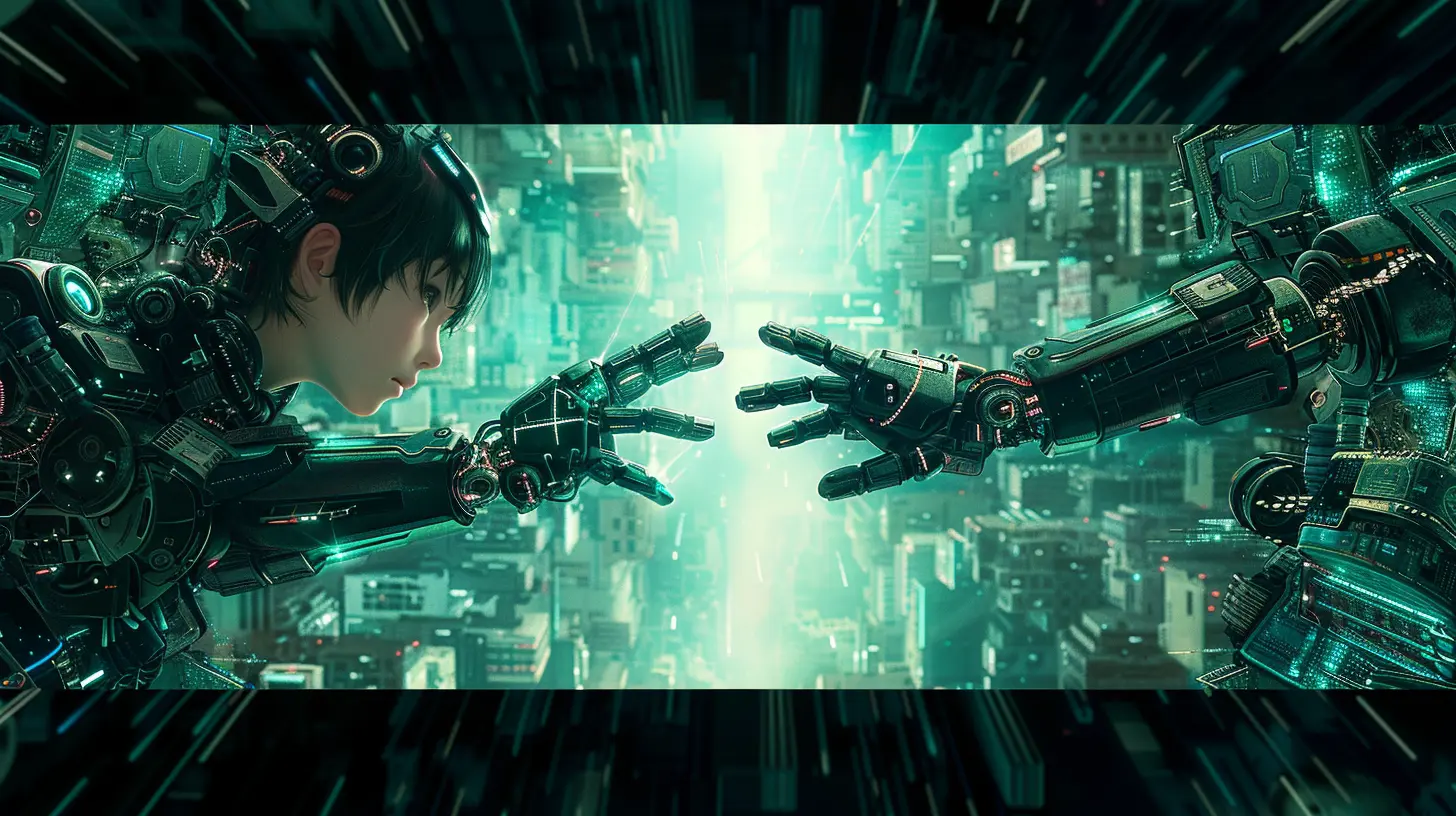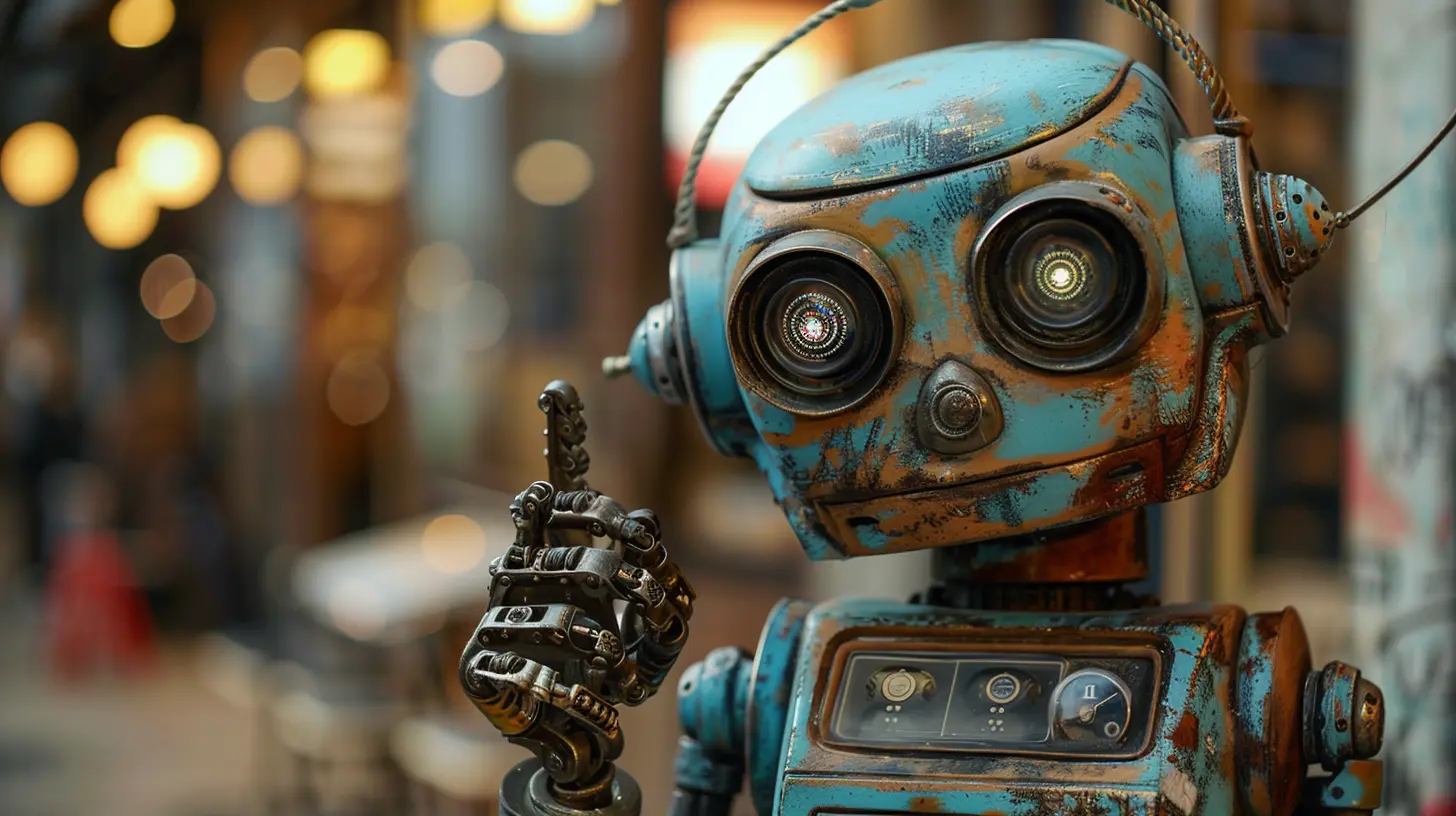When Automation Fails: The Importance of the Human Touch
15 January 2025
Automation. It’s transformed the way we live, shop, and even work. From chatbots answering your customer service queries to self-checkout machines ringing up your groceries, automation is everywhere. And let’s be real—it’s pretty amazing. Businesses have embraced automation because it’s fast, cost-efficient, and scalable all at once.
But let’s pump the brakes for a second. Is automation always the answer?
Well, not quite. Because as incredible as automation is, it’s not foolproof. Sometimes, things go wrong. And when they do, the only real solution isn’t an algorithm—it’s the human touch.
In this article, we’re peeling back the layers on why automation isn’t a cure-all and why human intervention still matters in a world obsessed with efficiency. So, buckle up—this might just change how you think about how businesses are run. 
Why Automation Has Taken Over (And Why We Love It)
Let’s take a moment to appreciate automation for what it is—a game changer.For businesses, it’s a no-brainer. Automation slashes costs, processes data faster than you can blink, and runs 24/7 with zero complaints (ever heard a chatbot ask for a vacation?). From automating email marketing campaigns to streamlining supply chains, companies can save time and money like never before.
And for consumers? It’s all about convenience. Think about how easy it is to reorder your favorite products on Amazon with just one click. Or how fast you can book an Uber without calling anyone. It’s seamless, instant, and, let’s be honest, kind of addicting.
But here’s the thing—just because something is automated doesn’t mean it’s better. 
When Automation Goes Off the Rails
Picture this: You’re on the phone with your bank trying to sort out a billing issue. Instead of speaking to a human, you’re stuck in an endless loop of “Press 1 for balance inquiries” and “Press 2 for account issues.”By the time you (finally) get to a real person, your blood’s practically boiling. Sound familiar?
This is exactly what happens when automation fails. It’s supposed to make life easier, but sometimes it does the complete opposite.
Common Reasons Automation Fails
1. Lack of Context: A bot doesn’t know your life. It doesn’t understand the emotions behind a customer complaint, nor does it pick up on subtleties. Human problems are often, well…human. And that’s a language machines just don’t speak.2. Technical Glitches: Ever had a website’s auto-form crash while you were halfway through filling it out? Annoying isn’t even the word! Bugs and errors can make automation more of a hassle than a savior.
3. One-Size-Fits-All Approach: Automation programs typically work off pre-set scripts or rules. But people aren’t one-size-fits-all. Sometimes, a custom touch is exactly what’s needed—and that’s something machines can’t provide.
4. Loss of Personal Connection: A chatbot can answer your questions, sure. But can it empathize when you’re venting about a messed-up order? Not really. Without that human-to-human interaction, customers often feel unheard.
5. Ethical Concerns: Poorly managed automation can lead to bias or unfair results. Think about hiring systems that unintentionally discriminate against certain candidates. That’s not just a tech issue—it’s a people issue. 
The Cost of Ignoring the Human Element
Companies that lean too heavily on automation risk alienating the very people they’re trying to serve. Customers want to feel valued, not like they’re talking to a wall of code.Have you ever had a company screw up—big time—but then completely redeem themselves with an amazing customer support experience? That’s the power of the human touch. And when it’s missing, well, it’s game over.
Let’s break this down:
1. Customer Dissatisfaction: A customer who feels ignored or misunderstood is way more likely to walk away from your brand. And in the age of social media, bad reviews spread faster than wildfire.
2. Lost Opportunities: Automation works off algorithms and set rules, but humans see the big picture. They can read between the lines, spot trends, and connect dots in ways that machines simply can’t.
3. Reputation Damage: Imagine being the company everyone complains about because your “hold times are outrageous” or your chatbot “never works.” Ouch. That kind of reputation is hard to shake.
4. Hidden Costs: Sure, automation saves money upfront. But the damage caused by poor customer experiences—like lost sales or fixing technical errors—can quickly add up. 
When Humans and Machines Work Together: The Sweet Spot
Here’s the thing about automation: It’s not your enemy. It’s a tool. And like any tool, it’s all about how you use it.The trick is to find the balance between automation and human interaction. Think of it like the perfect recipe—automation is the foundation, but it’s the human touch that adds the seasoning.
Examples of the Perfect Blend
1. Customer Support Teams: Use automation to handle the easy stuff—like answering FAQs or processing refunds—but make sure real humans are available when things get complicated.2. E-commerce: Personalization algorithms can recommend products based on browsing history, but human customer service reps can help shoppers find that “special something” when they’re stuck.
3. Healthcare: Chatbots can schedule appointments or send reminders, but nothing replaces one-on-one time with a doctor who listens to your concerns.
4. Marketing and Sales: Automating email campaigns is great, but human copywriters add the creativity and spark needed to truly connect with your audience.
5. Hiring and Recruiting: While AI tools can screen resumes for keywords, HR professionals are still the ones conducting interviews and assessing cultural fit.
By combining the efficiency of automation with the empathy and creativity of humans, businesses can deliver smarter, better, and more meaningful experiences.
How to Bring Back the Human Touch Where It Matters Most
Okay, so we’ve established that going full-automation isn’t the answer. But how do you incorporate the human touch without going full manual-mode?Here are some pro tips:
1. Train Your Team: Empower employees to step in when automation falters. Make it clear that their role is critical, not secondary.
2. Set Limits on Automation: Not everything needs to be automated. Identify which tasks are better left to humans and draw a clear line in the sand.
3. Invest in Customer Support: Don’t skimp on the team that bridges the gap between your customers and the brand. This is where relationships are built—or broken.
4. Gather Feedback: Want to know where automation is failing? Ask your customers. Their insights are gold when it comes to improving processes.
5. Keep It Human: Whether it’s a warm email tone or a friendly phone call, small touches can go a long way in reminding your customers there’s a person behind the screen.
Looking Ahead: Automation Isn’t the Enemy
The future of work isn’t about automation replacing humans—it’s about humans and technology working together.Think of automation as an assistant, not a boss. It’s there to make your life easier, not erase the need for human talent. Businesses that strike the right balance will not only survive but thrive in a tech-driven world.
So next time you’re tweaking your business processes, ask yourself: Are we relying on machines too much? And more importantly, are we keeping the human touch alive?
Because when automation fails—and it will—it’s the people behind the scenes who’ll save the day. Let’s not forget that, okay?
all images in this post were generated using AI tools
Category:
Customer ServiceAuthor:

Rosa Gilbert
Discussion
rate this article
18 comments
Laila Erickson
Great insights! It’s a poignant reminder that while automation can enhance efficiency, the human touch remains essential in fostering genuine connections and understanding customer needs. Balance is key.
April 3, 2025 at 4:24 AM

Rosa Gilbert
Thank you! I completely agree—finding the right balance between automation and the human element is crucial for truly understanding and connecting with customers.
Quillan Hughes
Automation excels, but humanity drives lasting connections. Always.
February 14, 2025 at 3:27 AM

Rosa Gilbert
Absolutely! While automation enhances efficiency, it's the human touch that fosters genuine relationships and trust.
Mika McKee
Automation is great until it mistakenly orders 500 rubber chickens instead of paper clips. Here’s to the human touch—because sometimes, you just need a person to say, 'Oops!'
February 3, 2025 at 11:29 AM

Rosa Gilbert
Absolutely! While automation enhances efficiency, the human touch is essential for nuance and error correction. We need that oversight to catch the unexpected “oops” moments!
Faelan Clark
Great article! It highlights the critical balance between automation and human interaction, reminding us that personal connections drive meaningful engagement.
February 1, 2025 at 9:07 PM

Rosa Gilbert
Thank you! I'm glad you found it insightful. Balancing automation with personal connections is indeed essential for meaningful engagement.
Gisela Rodriguez
Automation is like a coffee machine—great until it sputters! Remember, sometimes a human touch is the secret ingredient that transforms a bitter brew into a delightful experience. Cheers to humanity!
January 30, 2025 at 9:15 PM

Rosa Gilbert
Absolutely! While automation enhances efficiency, the human touch is essential for empathy and creativity, turning challenges into meaningful experiences. Cheers indeed!
Jemima McMillen
Automation can enhance efficiency, but it often lacks the empathy and intuition that humans bring to the table. A harmonious blend of technology and human insight is essential for businesses to thrive and adapt in an ever-evolving landscape.
January 27, 2025 at 5:19 AM

Rosa Gilbert
Thank you for your insightful comment! I completely agree that while automation boosts efficiency, the human touch remains vital for adaptability and empathy in business. A balanced approach is key to thriving in today's dynamic environment.
Reid McKay
While automation enhances efficiency, this article highlights the irreplaceable value of human insight in business.
January 24, 2025 at 2:02 PM

Rosa Gilbert
Thank you for your insight! I completely agree—while automation streamlines processes, human intuition and understanding are essential for truly effective decision-making in business.
Lennox McAnally
This article highlights a crucial truth: while automation is powerful, the irreplaceable human touch often drives true connection and success. Curious insights!
January 23, 2025 at 11:34 AM

Rosa Gilbert
Thank you! I completely agree—automation is valuable, but the human touch remains essential for fostering genuine connections and achieving real success.
Cooper McIntosh
This article beautifully highlights the crucial balance between automation and human connection. In a world increasingly driven by technology, the empathy and understanding humans provide remain irreplaceable—truly essential in every interaction.
January 23, 2025 at 5:32 AM

Rosa Gilbert
Thank you! I’m glad you found the article resonates with the importance of preserving human connection amidst the rise of automation.
Buzz Banks
This article insightfully highlights a crucial aspect of modern business: while automation enhances efficiency, the human touch remains irreplaceable. Balancing technology with personal interaction fosters deeper connections and drives innovation. Businesses must prioritize empathy and adaptability to navigate challenges and sustain meaningful relationships with clients and employees.
January 22, 2025 at 11:33 AM

Rosa Gilbert
Thank you for your thoughtful comment! I completely agree that balancing automation with personal interaction is vital for fostering strong relationships and driving innovation in modern business.
Celine Alexander
While automation streamlines processes, this article rightly emphasizes that human oversight is essential. It’s our empathy, creativity, and critical thinking that ultimately drive success, especially when technology falls short. Balance is key for optimal results.
January 22, 2025 at 5:18 AM

Rosa Gilbert
Thank you for your insightful comment! I completely agree—human skills are irreplaceable in ensuring that we harness automation effectively. Balancing both is crucial for success.
Lulu Larsen
Automation is great until a toaster starts giving unsolicited life advice! Remember, even robots need a little human finesse to avoid a burnt breakfast!
January 21, 2025 at 7:47 PM

Rosa Gilbert
Absolutely! While automation enhances efficiency, the human touch ensures empathy and understanding—essential ingredients for both breakfast success and life!
Nicholas McGrady
Automation enhances efficiency, yet human insight remains crucial for emotional connection and adaptability.
January 20, 2025 at 1:59 PM

Rosa Gilbert
Absolutely! While automation streamlines processes, human insight is essential for fostering emotional connections and adapting to unique situations.
Erin Lopez
Robots can't hug—human touch matters!
January 19, 2025 at 9:19 PM

Rosa Gilbert
You're right! While automation enhances efficiency, nothing can replace the emotional connection and comfort that human touch provides.
Roxie Martinez
Automation excels, but when it falters, human intuition and empathy are the ultimate safety nets for any business.
January 18, 2025 at 5:59 AM

Rosa Gilbert
Thank you for your insightful comment! Indeed, while automation enhances efficiency, the human touch remains crucial for navigating challenges and ensuring a compassionate response in critical situations.
Jasmine McKinney
Machines falter, humanity thrives.
January 17, 2025 at 1:57 PM

Rosa Gilbert
Absolutely! While machines enhance efficiency, it's our human creativity and empathy that truly drive resilience and innovation in challenging times.
Daria McClary
This article highlights a crucial aspect of business—balancing automation with human interaction. While technology enhances efficiency, the human touch fosters connections and understanding. Emphasizing empathy and adaptability in customer service can truly differentiate a brand and ensure long-term success. Great insights!
January 17, 2025 at 4:42 AM

Rosa Gilbert
Thank you for your thoughtful comment! I completely agree—balancing automation with human interaction is key to creating meaningful connections and driving long-term success.
Whitney Baxter
While automation streamlines processes, it's the human touch that nurtures relationships and fosters creativity—essential for enduring success.
January 15, 2025 at 1:26 PM

Rosa Gilbert
Absolutely! Automation enhances efficiency, but human connection and creativity are vital for building lasting relationships and driving innovation.
MORE POSTS

Elevating Your Brand with Interactive Content

How to Transition from a Full-Time Job to Freelancing

How to Build a Strong Relationship with Your Franchise Support Team

The Impact of Podcasting on Content Marketing Strategies

How to Maintain Consistency When Your Schedule is Unpredictable

Proven Tactics to Improve Your Small Business Cash Flow

The Role of Email Marketing in Building Customer Loyalty

Creating a Results-Oriented Remote Work Mindset

Using SEO to Increase Website Traffic for Your Business

How to Embrace Technology to Enhance Your Sales Process

Best Practices for Collaborating with Influencers on Content Creation